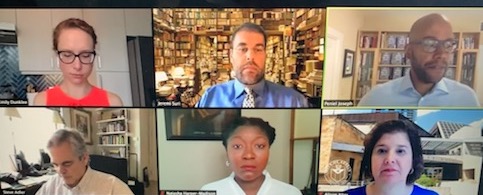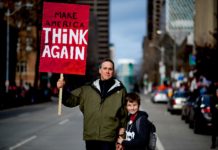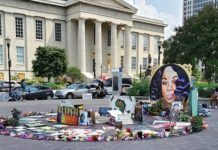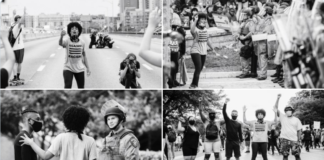Sometimes they spoke eloquently. Sometimes they struggled. Sometimes they wandered and searched for words amid a historical moment that eludes easy and quick articulation. It was, after all, a hastily arranged meeting, convened under pandemic rules. It was held against a backdrop of protests sweeping a nation reeling at a police murder just a week ago of yet another unarmed black man, George Floyd in Minneapolis. One more victim amid the endless dual plagues of violence and COVID-19, both of which torment cities to include Austin.
But in a “community conversation” of Austin leaders and thinkers attended by almost 1,000 online, the city’s lone African American council member, speaking through visible exhaustion, called for a new, urgent and very different conversation on race and racism. Particularly in a city that thinks of itself as among America’s most progressive.
“I get a lot of messages from sincere people saying ‘how can I help you? How can I help your people’,” said Natasha Harper-Madison, who represents the historically black but fast-gentrifying East Side section of the city known as District 1. “I want to let that marinate a little bit,” she quickly added, leaving the five other panelists to stew in a bit of her rhetorical juice inside their Zoom meeting squares.
“It’s not about me,” Harper-Madison continued, her voice rising. “And it’s not about ‘my people.’ This is all of our shame. This is all of our concern.”
Which was – and is – the point. Austin, along with the rest of the country, is struggling to find new language, new ways of thinking, new models of justice and so much more as serial social failures are laid bare for all to see. Or as Harper-Madison put it, we can “no longer ignore what we already knew was true.”
The meeting was hosted by the Center for Race and Democracy at the University of Texas at Austin. Co-moderated by the center’s founder, Peniel Joseph and fellow UT professor and historian Jeremi Suri, the panel was joined by Austin Mayor Steve Adler, City Councilwoman Alison Alter who represents the city’s northwest – and largely white – District 10, and Councilwoman Harper-Madison. Also joining was Emily Dunklee, the center’s coordinator.
The meeting, informally a kind of run-up to a full City Council meeting on Thursday, May 28, foreshadowed the discussions, debates and decisions that in Austin, like all American cities, will now dominate civic life and discourse.
- Police funding: Public safety takes some 65 percent of the city’s spending, down said Adler, from 70 percent a few years ago. It’s still a sum that growing numbers are questioning including the grassroots NGO Austin Justice Coalition which is leading the local campaign of the national Black Lives Matters movement’s #DefundthePolice. Adler and Councilwoman Alter both spoke of efforts to examine new priorities including mental health, healthcare, homelessness and housing. “We need to build equity into all our conversations,” said Alter.
- Austin’s own record of police brutality: Just in April, 42-year-old and unarmed Michael Ramos was killed by police in south Austin, just one case amid those that go back decades. Alter spoke of her successful initiative within the last round of city-police contract negotiations to create an office of police oversight. But all on the panel acknowledged it hasn’t made the difference needed. An African American teen, Brad Levi Ayala, was shot at a protest over the weekend with what police call “bean bag ammunition” and remains hospitalized
- Equity considered broadly: The Latinx, LGBTQ, Trans, and other groups fighting for equity need to be more effectively included in the new conversation, all agreed. Adler alluded to the marginalization of immigrants, noting that 50 percent of construction workers in Austin refuse to be tested for COVID-19 because they fear it would lead to arrest.
Center Director Joseph, who wrote in advance of the meeting for Urbānitūs, on the crisis of racial justice, echoed Harper-Madison in his closing comments to say we’re all at the very beginning of a large new chapter in our civic life that will not resemble the past in any way. Anti-racism is now everyone’s challenge. He said more meetings like Wednesday’s will follow at behest of the Center for Race and Democracy and that anti-racism will be the work of virtually every Austin institution.
“Antiracism is a lifelong project, not only when it’s in the news, in the New York Times,” Joseph said. “If we commit to that antiracism we can transform this world, and we can transform Austin.”
A video recording of Justice and Equity in a Time of National Racial Crisis: A Community Conversation can be viewed here. Audio only is available here. And the full written transcript is here.
Disclosure: Professor Jeremi Suri, co-moderator of Wednesday’s discussion, is a co-founder of Urbānitūs.
If you like what you’ve been reading, please click here to subscribe and we will send you updates and our newsletter.






